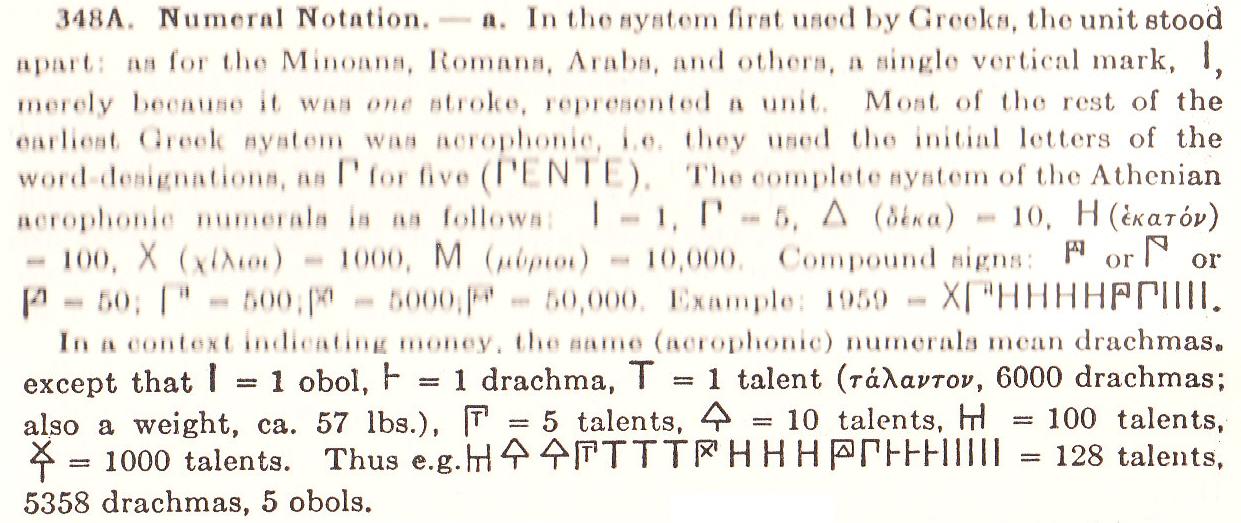And You Thought Roman Numerals Were Unnecessarily Complex . . .
Eugene Volokh quotes M. I. Finley’s warning about the unreliability of numbers in ancient authors:
Even the rare figure to which an ancient author treats us is suspect a priori …. [W]hen Thucydides (7.27.5) tells us that more than 20,000 slaves escaped from Attica in the final decade of the Peloponnesian War, just what do we in fact know? Did Thucydides have a network or agents stationed along the border between Attica and Boeotia for ten years counting the fugitives as they sneaked across? This is not a frivolous question, given the solemnity with which his statement is repeated in modern books and then used as the basis for calculations and conclusions.
In the comments, Stephen C. Carlson asks “Yikes, how does one know that the figures survived the manuscript transmission by manual copying intact?”. How, indeed? Here’s is just a bit of what H. W. Smyth’s Greek Grammar (revised edition, 1956) has to say about Greek numerical symbols:

Sorry if the top part is illegible: the book is too fat to scan comfortably, so the part from the left-hand page came out very pale and blurry. The problem should be clear, even if the text is not. By the way, I’d never noticed before, but this quotation is from pages 104 and 104A. The rest of the book is numbered normally from i to xviii and then from 1 to 784, but there are extra pages 4A, 4B, 104A, and 104B. (Not that I’ve checked every page, of course: there may be other interruptions to the numerical sequence.) Apparently the 1956 revisions involved inserting some extra pages without resetting the entire work.
Here is something on Roman numerical symbols, from Gildersleeve and Lodge’s Latin Grammar (3rd edition, 1895, p. 52):

It’s amazing that ancient politicians and businessmen could do their books at all.

